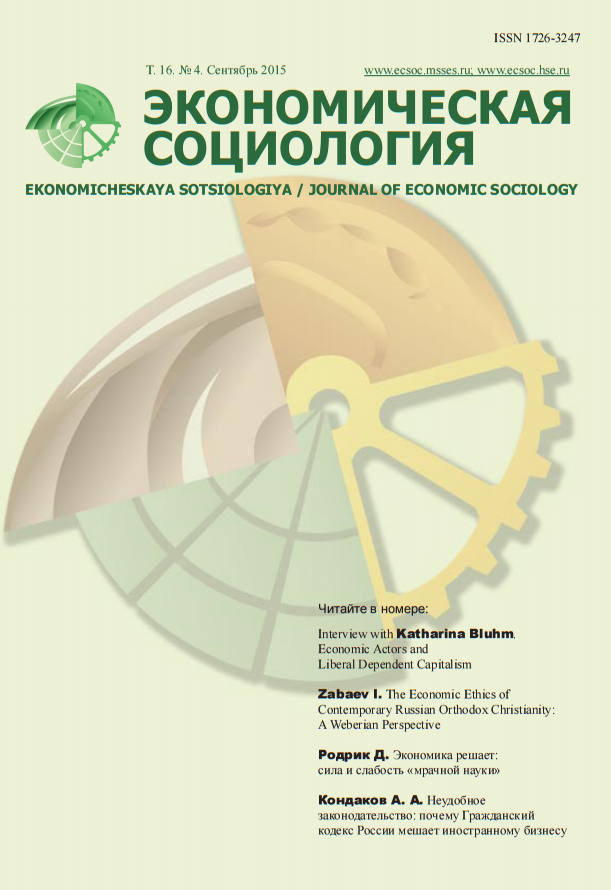How Judgments of Quality are Formed within Markets of Singularities
Book Review: Karpik L. (2010) Valuing the Unique:The Economics of Singularities, Princeton; Oxford: Princeton University Press
Abstract
Choosing a good novel, a fancy restaurant, artwork, or a qualified specialist practitioner cannot be understood with the help of theories of exchange mechanisms offered by economics. Lucien Karpik suggests the concept of “singularity” for analyzing consumer choice of high-quality unique goods. The main attributes of “singularities” include multidimensionality, uncertainty, and incommensurability. The important traits of markets for singularities include opacity and opportunism, the necessity for coordination mechanisms, the dominance of quality competition over price competition, and the impossibility to explain price setting with the supply-demand equilibrium.
Markets for singularities contain judgment devices (e.g. guides, expert reviews, laureate lists) which help consumers to make a choice. These devices are used in order to reduce uncertainty, providing consumers with necessary knowledge. These devices include networks, certificates of quality, expert systems, ratings (composed by experts or developed by the market), techniques of consumer manipulation and forms of product demonstration at points of sales.
Markets for singularities are governed on the basis of several coordination regimes. Thus, the “regime of authenticity” can be found within markets of expensive wine based on guarantees of quality. “Mega-regime” refers to situations where brand names signal a certain quality, such as global movie producers, luxury apparel manufactures, and so on. The “regime of expert opinion” exists within constrained markets, including books, movies, theatre performances, etc. The “regime of professional coordination” is applied to markets of personal services such as physicians or architects, where service suppliers are governed by professional ethics and associations.
Prices for singularities are not determined by the standard equilibrium mechanism of supply and demand, but instead are set based on restraints of volume production. A market for a singularity also implies great discrepancies in prices for top-tier products by ratings versus goods produced for mass consumption.













